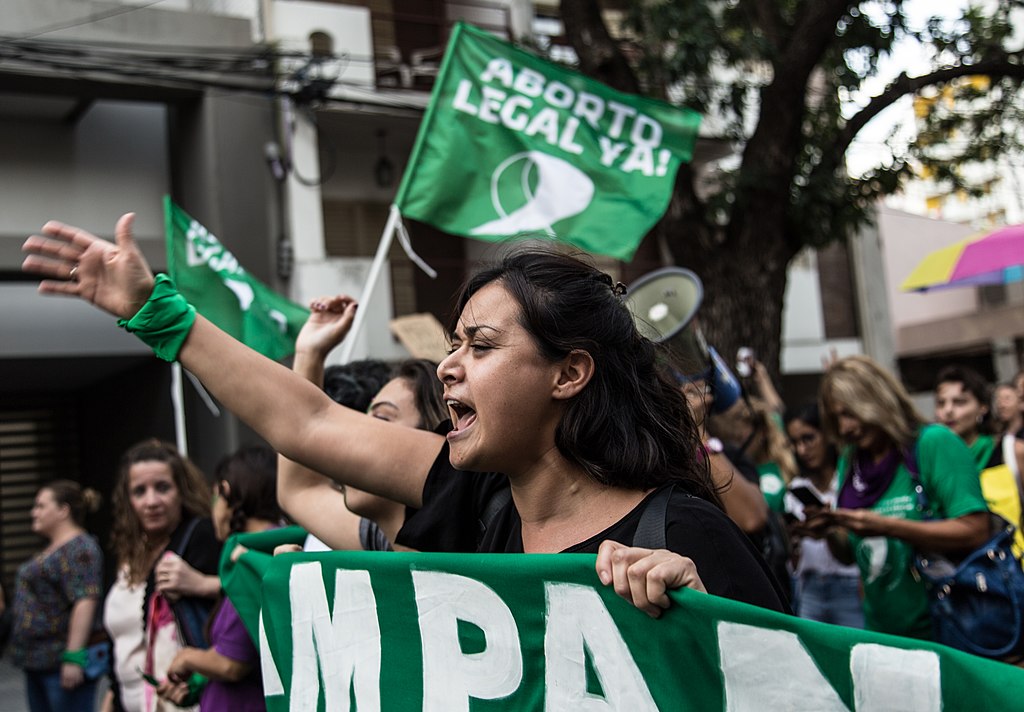
Latin American women want the right to a legal and safe abortion
By Andrea Silva Santisteban Fort, February 21 2021—
On Dec. 30, 2020 the legislation that made abortion legal in Argentina was approved with 38 affirmative votes, 29 negative votes and one abstention. This was not the first time this issue had been discussed. A bill to legalize this procedure had been approved in 2018 by the Chamber of Deputies, but rejected by the Senate. Nevertheless, Argentinian women have now acquired the right to access voluntary, safe, legal and free abortion up to their 14th week of pregnancy.
Voluntary termination of pregnancy is a controversial issue from which various opinions and positions have emerged. A woman’s right to her own body, the beginning of the life of a fetus and the intervention of the Church in the matter are factors that must be taken into consideration when discussing this matter. However, I personally consider that we need to stop debating hypothetical concepts and scenarios. We need to focus on the current reality — the legation of abortion is a measure to protect the health and integrity of women.
In Latin America, the legality of the different modalities of abortion varies depending on the region. The voluntary termination of a pregnancy is only fully legal in Cuba, Uruguay, Puerto Rico, Guyana and two federal entities of Mexico. This situation is uncommon in this region. In majority of Latin American countries, abortion is only legal under certain circumstances. In Colombia, Chile, Panama, Brazil and Bolivia, this procedure is only allowed in cases of rape or for “therapeutic purposes,” when the continuation of the pregnancy means a serious risk for the mother. In Peru, Costa Rica, Venezuela, Ecuador, Paraguay and Guatemala it is only authorized for therapeutic purposes. Lastly, in Honduras, El Salvador and Nicaragua abortion is prohibited under all circumstances.
The ban of this procedure across the continent does not mean that it does not take place — clandestine abortions are the “solution” chosen by many women. Before the legislation was passed, the Argentinian government estimated that between 370,000 and 520,000 clandestine abortions occurred annually. In countries where the voluntary termination of pregnancy is penalized, women try to self-induce abortion by using either very dangerous methods or drugs purchased from pharmacists. Another option is to get this procedure done by untrained “doctors” in unsanitary conditions. When abortions are done in precarious circumstances, the consequences can de fatal. About 760,000 women in Latin America are annually hospitalized for complications like excessive blood loss, infections, septic shock or perforation of internal organs from unsafe abortions.
The illegality of abortion has even more detrimental effects on women who find themselves in poverty. Those who live in rural areas are more likely than other women to suffer serious complications from unsafe abortions. In my opinion, this procedure must be carried out in a safe and sanitary manner, without depending on the economic income of the pregnant woman. The legalization on abortion should be taken as a measure to protect women. This is a service that the State should provide as it is their main responsibility to provide citizens with their most basic human rights.
We need to reflect on the consequences of the illegality of abortion in Latin America. If a woman needs or wants to end her pregnancy, she will do so. However, considering the current legal context, this procedure will be done in clandestine conditions under which her life will be in danger. The legation of abortion is a measure necessary to protect the health and integrity of women.
This article is part of our Opinions section and does not necessarily reflect the views of the Gauntlet’s editorial board.
